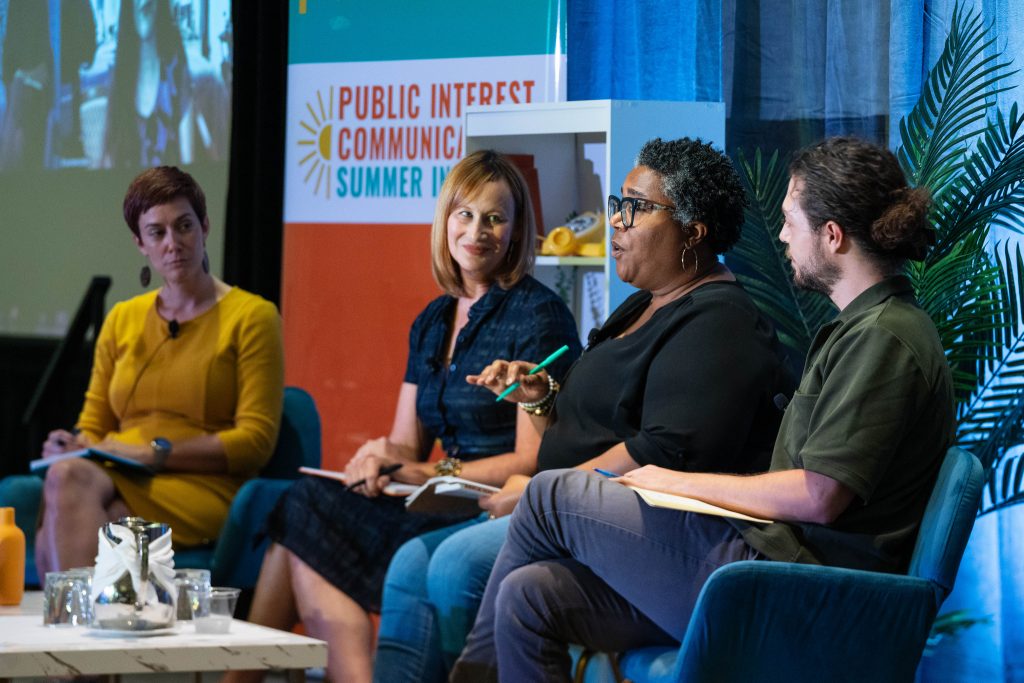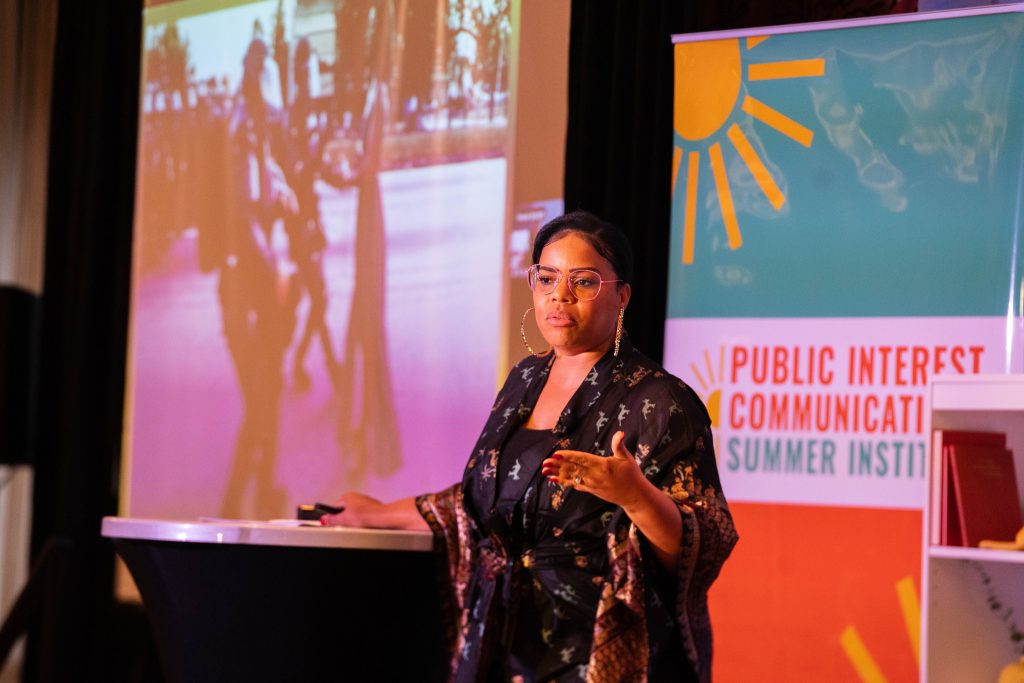Public Interest Communications
Summer Institute 2023
More from the 2023 Public Interest Communications Summer Institute
Summary
By Angela Bradbery, Frank Karel Endowed Chair in Public Interest Communications
At the University of Houston, communications students were enlisted in 2021 to help the local Latino community recognize the signs of Alzheimer’s and learn how to address them. Community members wanted positively framed messages that would work across generations and be delivered in a culturally meaningful media format.
From a one-day scriptwriting hackathon for students and Houston residents emerged a five-part telenovela that told the fictional story of a Latino family helping a grandfather confront declining brain health. The soap opera, which students produced and cast, premiered in November 2022 and was screened in the community. Now, AARP and the national Alzheimer’s Association want to license the novellas.
That’s just one sample of public interest communications work being done at higher education institutions. It was shared at the 2023 Public Interest Communications Summer Institute, held June 14-16 at the University of Houston. Organized by the Public Interest Communications Educators Network, the event is part of a broader nationwide effort to build the emerging academic discipline of public interest communications.

The summer institute brought together more than 100 educators, administrators, researchers, graduate students and public interest practitioners to share ideas and learn from each other. Attendees came from a variety of fields to explore everything from best practices in conducting community-engaged research, to content for public interest communications curriculum, to what public interest technology entails and how it intersects with public interest communications.
Public interest communications uses research-based strategic communications to effect positive social change. The discipline borrows from public relations, journalism, cognitive linguistics, sociology, psychology and more. The Educators Network, of which the University of Florida is a founding member, aims for public interest communications curricula to be as available in higher education institutions nationwide as journalism and public relations are today. (The University of Florida is one of only a handful of U.S. institutions to offer public interest communications courses at both the undergraduate and graduate levels. Other institutions that offer such coursework are West Virginia University, Appalachian State University, Florida State University and the University of Washington.)
“We aim to instill in students a sense that it is within their power to change the world for the better,” said Hub Brown, dean of the University of Florida College of Journalism and Communications in his opening remarks. “We can equip students with the best communications skills possible to go into the world and advance positive social change.”
Added Jennifer Vardeman, director of the University of Houston’s Jack Valenti School of Communication, “We are obligated to our students to make a positive impact on our surrounding communities. Promoting projects that support the public interest is a win-win for our students and community.”

Institute attendees got tips on conducting community-engaged scholarship (develop trust by spending time with communities and invite the community to participate in data collection) and heard from scholars whose work explores such areas as using data to reduce climate harm, making court records free and accessible to everyone, including litigants without means, and showing how narratives told in rural America that influence local policymaking exclude communities of color and poor whites.
Álvaro Huerta, a self-described Chicano scholar-activist who is associate professor in urban and region planning and ethnic and women’s studies at Cal Poly Pomona, called for dominant narratives about marginalized communities to be replaced. They pit people within those communities against each other by labeling migrants as “good” or “bad.” It’s like fighting over Pepsi and Coke, while a third drink option isn’t mentioned, he said.
E. Ciszek, associate professor at the University of Texas at Austin and leader in strategic communications around LGBTQ research and queer theories, advised graduate students and young faculty to conduct research that aligns with their values and beliefs. “I cannot do research that I do not care about,” Ciszek said. “You’ve got to find something that gives you life energy and that fills you and that is connected to your values and your spaces of interest.”
Other speakers included Houston-area public interest communications practitioners and activists, who talked about what they need from researchers: clearly written findings with an explanation of how the findings can be applied.
Speakers and attendees also identified challenges that universities should address to help the discipline of public interest communications flourish:
- Effective community-engaged research requires spending time with a community, which the unforgiving academic calendar doesn’t provide.
- To be useful to communities and society, public interest research must be published in accessible ways, such as through commentary pieces in mainstream publications. But such work generally doesn’t count toward promotion and tenure; the academy incentivizes publishing in academic journals that are behind paywalls and written using terminology that most nonacademics don’t understand.
- Public interest communications involves advocacy, but advocacy often is shunned by the academy, which expects academics to be neutral on social issues.
Attendee Pratik Shah, who received his Ph.D. in advertising in May from the University of Texas at Austin and will be teaching at California State University in Fresno in the fall, called the institute “a very intellectually expanding experience. … I really hope to be able to teach public interest communication in the future and expand my research into that area.”
Don’t want to miss next year’s summer institute? Give us your email address and tell us what issues you want covered next time.
The University of Florida led the organizing of the 2023 Public Interest Communications Summer Institute. UF is a founding member of the Public Interest Communications Educators Network, which formed in the fall of 2021 and has representatives from 18 institutions.
